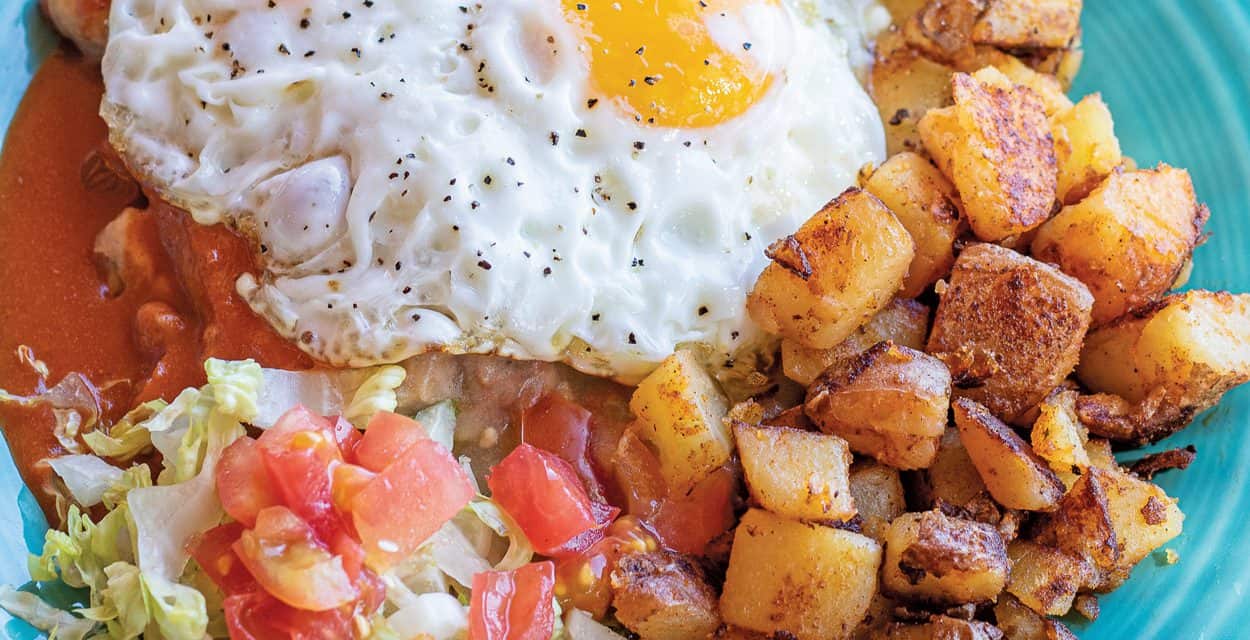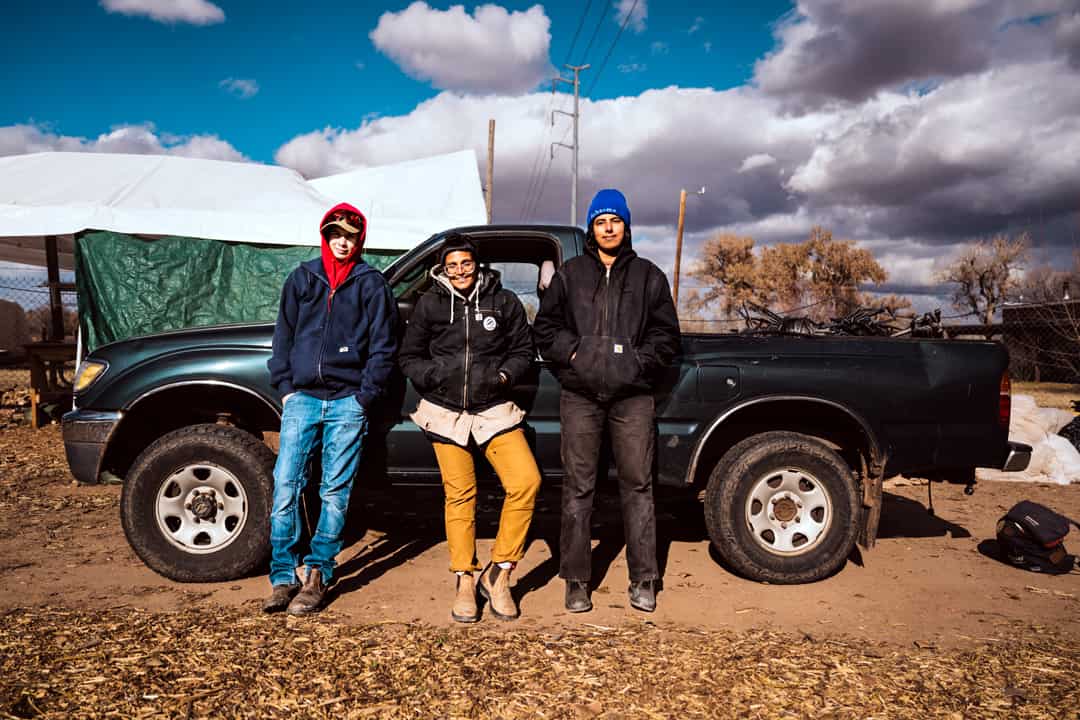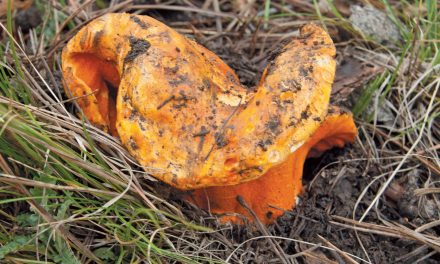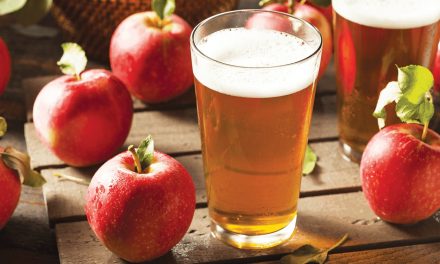Olla Award
Photos by Stephanie Cameron
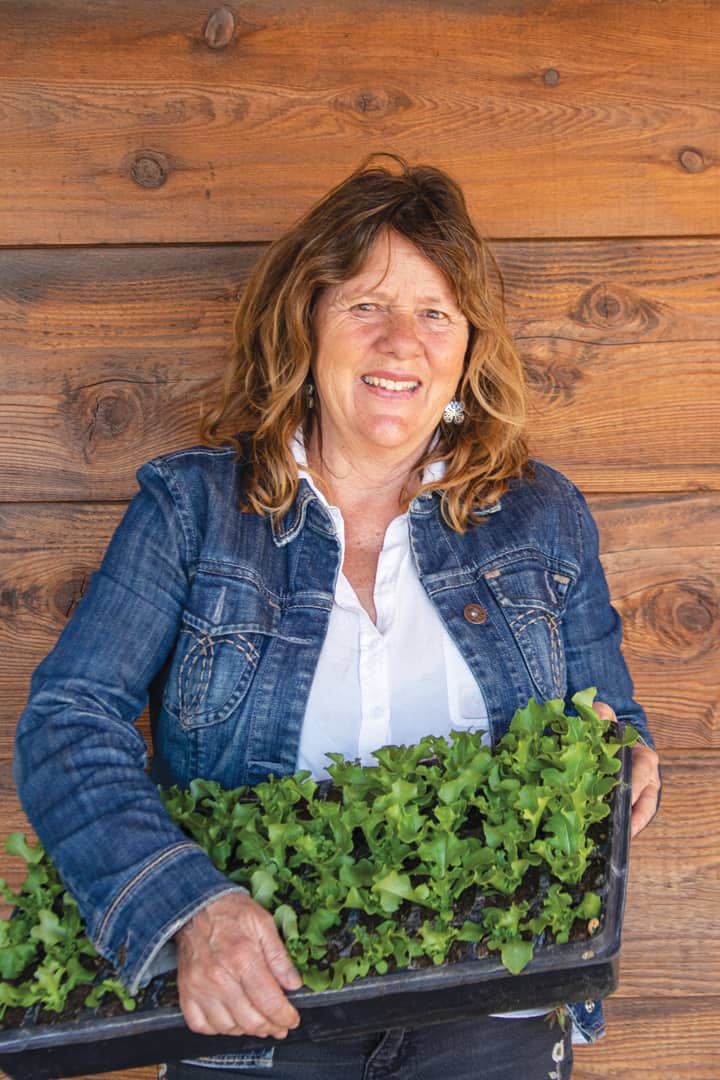

Left: Micah Roseberry. Right: Picadillo bison empanadas with raisins, tomatoes, onions, kalamata olives, and spices, simmered in a sweet and savory sauce, baked into a pastry dough crust.
The Olla Award recognizes individuals who have made significant contributions in the realm of good food work in New Mexico, and who are creating a more robust local food system. Nominations are submitted by the general public and the winner is determined by the edible team.
While on a teaching assignment in Mexico in 2011, Micah Roseberry saw that the future of food sovereignty, the health of the environment, and the future of children were deeply intertwined. Returning to the United States, she taught sustainable farming at University of New Mexico-Taos and started the Farmhouse Café and Bakery, whose organic, local, USDA school lunch program serves one thousand meals daily. Roseberry directs the nonprofit Agriculture Implementation Research & Education (AIRE), which includes an educational project called Growing Community Now and provides support and consulting to other farming, education, and community projects. She has been an organic farmer and Waldorf educator for thirty-five years.
A few years back, you said, “The Farmhouse Café is a restaurant and bakery but it is also a community project.” Tell us about your vision for Farmhouse and the process of bringing it to life.
Farmhouse grew out of a project to preserve a historic two-hundred-acre ranch south of the café, adjacent to Taos Pueblo and next to Taos Mountain. It was fueled by a series of community events to raise awareness about local farming and ranching and the land being the “bread basket of Taos.” Harvest festivals, apple pressing, and hay rides got people out onto the land, and within a year the land was preserved, and I opened the café. The garden was planted before the doors opened. My son created daily specials, combining freshly harvested produce, local beef, and bison, which have become the mainstay of the Farmhouse menu.
I thought if I could teach for twenty-five years and coordinate a 160-family Waldorf-inspired school, it would be easy to start a restaurant. That was a huge miscalculation! My motto was building the local farming network, one seed at a time. Every mistake was an opportunity to connect with a customer about the mission and importance of eating local. I convinced even the dishwasher he was washing dishes for the butterflies.
What brought you to this work? Was there a pivotal moment that led you to start Farmhouse?
I was in the mountains with monarch butterflies in Mexico in 2011. Returning to Taos, I read in the Wall Street Journal that monarchs were actively threatened—their population had dropped 59 percent. Having been a farmer for twenty-five years, I knew one challenge to expanding production is finding a market. I decided to combine a market for local farmers and a pilot project to prove we can afford to eat organic, local food and save our pollinators with regenerative agriculture practices. Understanding the cultural link and saving traditional acequia water by growing local made me realize that it is imperative for kids to have food sovereignty . . . not just specialty farm-to-table restaurants, but getting this food into the school lunch program and teaching the importance of saving the pollinators. I started with ninety lunches at the UNM-Taos Kid’s Campus, and today the Farmhouse lunch program serves almost a thousand USDA meals a day.
Farmhouse Café has been sourcing local from the start. What would your advice be to a chef or restaurant owner who sees buying from farmers as too expensive or too complicated?
Take time to connect with the community. See farmers and ranchers as an important link in a network that supports food sovereignty and sustainability. The value of purchasing local is multiplied many times beyond the monetary expenditure. Educating customers is key. Engaging with farmers that are building farming systems and realizing that as these networks are connected through markets, equipment, and storage, we as food establishments can leverage and support increased production and support each other through climate, economic, and health risk challenges. Producer co-ops like the Albuquerque-based Agri-Cultura Network and the fledgling Rios del Norte Farm and Ranch Co-op in northern New Mexico support farmers directly and always have a consistent variety of high-quality, local produce.
Keeping our water rights and the cultural heritage of New Mexico is a vital outcome of this work. Opening the hearts of our customers through a delicious culinary experience is a beautiful way to increase support for local farmers and ranchers and ensure a lifelong love of local.
Growing Community Now, Farmhouse Café’s sister nonprofit, gives kids hands-on experience growing, cooking, and eating fresh food, and has also been working to partner farmers with local schools. What are some highlights from your work with Growing Community? What are you working on now?
We’ve been growing food and seeds with students for almost ten years. The enthusiasm that children have for engaging with the plants and tasting different ways of preparing fresh food is contagious. Blue corn is always a favorite, with each ear a shining gem to be discovered. One student said, “This is just like opening a present at Christmas!” Kale is another favorite, with students asking if they can eat the kale in the garden rather than waiting to make smoothies. The annual seed ceremony held around the traditional San Ysidro farming day in May is a special time for students to share all the seeds that have been grown throughout the years. We also bring farmers and ranchers into the cafeteria to meet students. Survey results from Aspen Solutions consultants confirm that students who report that they know a farmer or rancher are 25 percent more likely to taste new foods and eat more fresh fruits and vegetables. With students returning to classes, we are preparing to resume nutrition education classes, plant the outdoor gardens for full production, and harvest fresh lettuce from the greenhouses to make school salads.

Above: Huevos rancheros—corn tortillas layered with local pinto beans and cheddar cheese, served with red chile and topped with farm eggs.
AIRE is a related effort. Tell us more about your role with AIRE and the farm-to-school grants.
Through the Farm to School USDA planning grant and the NM Zone grant, the Rios del Norte Farm and Ranch Co-op was founded to produce affordable, healthy food for the USDA school lunch program. Collaboration between the Taos County Economic Development Corporation, the Vet Corp, local producers, and AIRE is increasing availability and striving to lower the cost of production. The school nutrition director, kitchen managers, and staff are amazing and open to learning new recipes. They remember the traditional “scratch” cooking and are still baking rolls from scratch. Soon, they will be using local Sonora wheat from Big Wheel Farm in Costilla.
Current projects include helping to build and manage school greenhouses and grow domes to provide fresh salad ingredients for a high school grab-n-go salad project. We are seeking funds for a food truck and mobile market project to take nutrition education classes and healthy farm food out to the surrounding neighborhoods this summer.
Additionally, AIRE is sponsoring a series of farm workshops, featuring local farmers and including lunch on the farm.
Last year was like no other. How did Farmhouse Café and Growing Community respond to the pandemic?
Initially, we had to weather a brief closing, but we ultimately made the commitment to remain open, thanks to the dedication of the Farmhouse team. Managers Isaac Carmona and Molly Chisolm led with flexibility and humor. I credit them with successfully steering Farmhouse through this last year of never-ending changes and challenges. Most importantly, we were able to keep our doors open and serve a bit of optimism, love, and local food to each customer and connect with the community who supports our vision. Now with spring weather, the patio is full of friends and visitors enjoying the freedom of sharing time, the incredible view, and good food. Who would have thought that homemade carrot cake could be so vital?
AIRE and Growing Community Now met the pandemic by increasing our Taos Community Farms CSA from 60 to 150 families. We provided stipends for high school interns on our Farmhouse garden site and aggregated local vegetables and fruit from fifteen different producers to help them get through when restaurants closed during COVID-19. We were able to incorporate the additional farm food in one thousand Farm-to-Family boxes for Pueblo families and others in need. AIRE collaborated with Rios del Norte to sell beef directly to families to help ranchers increase their viability and weather the processing bottlenecks. Rios del Norte purchased over 150 tons of hay to help local ranchers keep their breeding stock and yearlings through the drought conditions. These programs are continuing this spring.
Edible celebrates New Mexico's food culture, season by season. We believe that knowing where our food comes from is a powerful thing. With our high-quality, aesthetically pleasing and informative publication, we inspire readers to support and celebrate the growers, producers, chefs, beverage and food artisans, and other food professionals in our community.

